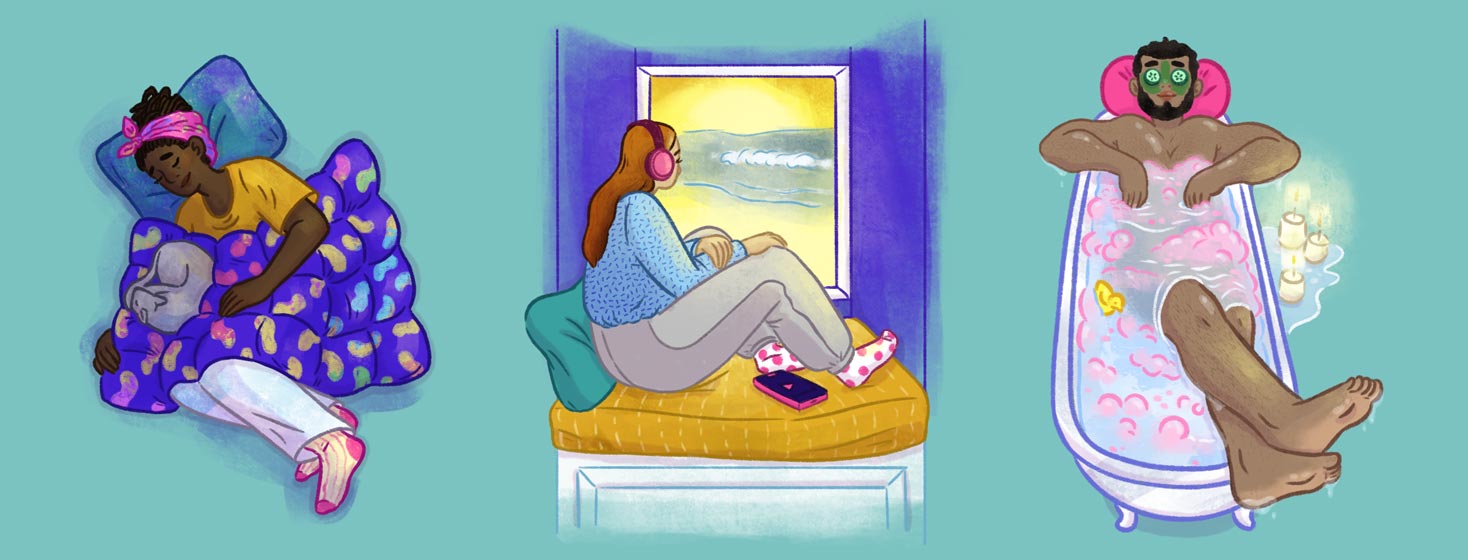Making Self-Care a Priority
I’ve had myasthenia gravis for almost 10 years now. I can’t believe I’m even typing that. It feels surreal to think back on how much I’ve learned since I was diagnosed.
I remember one of the first things my doctor told me was how much stress could influence how well or how poorly I would do with this disease. He told me how stress is a huge trigger and that I should do my best to manage that stress as best as possible. At the time I had a newborn, a toddler, and a small business. I didn’t think that it was possible to not be stressed.
Controlling my response to stress
What I learned wasn’t that I could eliminate or even reduce the stressful things that happened in my life, but that I could control how I responded to them. I learned that controlling my response meant taking care of my health in other ways before the stress became too much.
Some of the things I have done that have helped tremendously include guided meditation, a relaxing night-time routine, getting into nature, and taking cat naps. Naps are truly underrated!
Guided meditation
There are too many times to count where my "air hunger" or the ability to get a satisfying breath with MG have led to anxiety and panic. That in turn made my breathing worse and brought on other symptoms leading to flares and lots of hospital visits.
The only thing that would calm me down would be listening to guided meditation or even nature sounds. Sometimes the guided mediation would put too much focus on "my breath" and being mindful of it which only made things worse. That’s when I turned to listening to nature sounds or healing frequencies. I always bring my headphones with me and have a playlist created on Spotify on my phone.
Relaxing night-time routine
The second thing that has helped tremendously is a night-time routine. Typically, my symptoms get worse as the day progresses so it’s easy to just want to hop in bed. That’s fine if that’s all I’m able to do, but for the times when I have more strength and energy, nothing helps improve my sleep more than a warm shower, a cup of tea, cozy pajamas, and a soothing face mask.
I get much deeper sleep and go to bed relaxed rather than wound up from my day. Since my quality of sleep improves, I end up feeling better (and for longer) the next day too.
Getting into nature
One of the most important things I do for self-care includes getting into nature. That can be anything from a picnic blanket in the grass outside of my house to a full on nature hike for miles. When I feel symptoms start to come on, it can definitely affect my mental health. I start spiraling assuming the worst, that these symptoms will lead to a flare that will last weeks or put me in the hospital.
Getting into nature shifts that mindset and brings me back down to reality so I can think more positively and focus on feeling better.
Taking small naps
The final thing I do for self-care which helps combat the symptoms of MG is taking naps. They are so underrated. I feel like they are extremely necessary especially for those of us with myasthenia gravis, and I’ve even wrote another blog just on the importance of them.
For me, there’s not much a nap can’t fix, especially when I’m feeling overwhelmed or when my symptoms are getting worse.
Protecting my mental health
Sometimes it feels like there isn’t a thing I can do to feel better and it all becomes too much, however the things above have made it a little easier for me to cope or at least provide a distraction to protect my mental health. I then don’t feel like the world is over just because I don’t feel good which allows me to focus on what’s really important and that’s feeling better.

Join the conversation